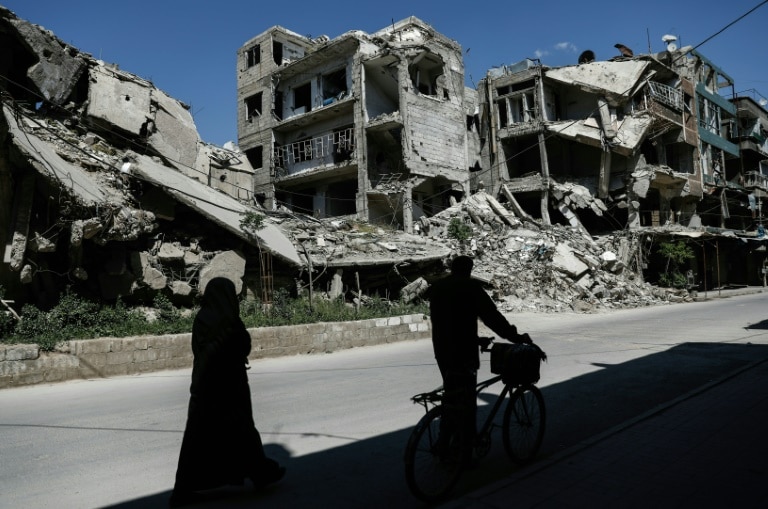NGOs working with residents in East Ghouta for a “food with high nutritional value”
Mustapha Itani and Joey Ayoub write for Global Voices Online:
Since the start of the 2011 Syrian revolution and subsequent civil war, many cities around Syria fell victim to harsh sieges and blockades, primarily by forces loyal to the Assad regime.
According to Siege Watch, a joint initiative of peace organization PAX and research institution The Syria Institute, there are about 1 million Syrians currently living under siege in areas of Damascus, rural Damascus and Homs, Deir ez-Zor, and Idlib governorates.
One area hit particularly hard is Eastern Ghouta, where a chemical weapon attack on August 21, 2013 killed hundreds of civilians. Many governments, international organizations, and the Syrian opposition conclude — based on investigations by the United Nations and other human rights groups — that the massacre was perpetrated by the Assad regime.
This part of rebel-held Syria right outside of Damascus has been under siege since 2013, leaving residents to rely on food produced locally or smuggled in through tunnels or across checkpoints.
Years of regime blockade have put traditional staples like meat far beyond the reach of ordinary citizens. In response, a group of Syrian humanitarians and academics are educating residents of Eastern Ghouta to cultivate their own mushrooms “as a lifesaving source of food.”
They call themselves Ghiras al-Nahda and the project is in coordination with another local NGO called the Adala Foundation.
Mushrooms are not among common crops in Syria, and are rarely featured in local cuisine, but their relative benefits have made them an appealing source of food for many in besieged Eastern Ghouta.
The project’s director, Abu Nabil, told news agency AFP, “We turned to cultivating mushrooms because they’re a food that has high nutritional value, similar to meat, and can be grown inside houses and basements.”
Speaking to Global Voices, one of the organizers, Dr. Ahmed Leila, said they have been struggling to make this project known for the past three years and expressed relief at it “finally seeing the light”.
They have been using the humanitarian crowdfunding platform CanDo, in coordination with Ghiras al-Nahda, to raise funds for their initiative. Dr. Leila told Global Voices that the project plans to teach 125 families to grow mushrooms.
At the time of writing, they had reached over 100% of their expected goal of approximately $14,800, but will continue to receive donations on CanDo until Monday, September 4, 2017.
This endeavor relies on generators to maintain temperatures stable at 25 degrees (77 degrees Fahrenheit) and the humidity in the air at 80%. Because of short supplies of fuel, these generators are fed with a locally-produced fuel that is extracted from plastic.
Dr. Leila told Global Voices that they started by “producing seeds from mushrooms that grow naturally in the region” before examining them and assessing their quality and suitability to be consumed.
They then built a small mushroom farm in a tub, and when this worked, they moved on to a bigger tub, and so on. Now, they have “designed an educational farm for the region”.
Since the start of this project, and over a period of three months, they have distributed mushrooms across Eastern Ghouta free of charge.
Dr. Leila explained that it’s part of a wider movement to educate. “We work to teach people how to grow mushrooms for several reasons”:
1. Breaking the siege.
2. Providing a new food source on the market
3. Spreading the culture of self-sustenance by benefiting from the remains at homes (like paper, tea, coffee grounds, cartons, etc.) and convert it to food
4. Employing more of the labor force, especially women working from home.
5. Employing those with special needs who are restricted to their homes
He added that they’re hoping to “spread this idea to the world so that they know our success as well as our struggle with hunger and the siege. We want our experience to inspire other trouble regions so that we can help humankind”.

